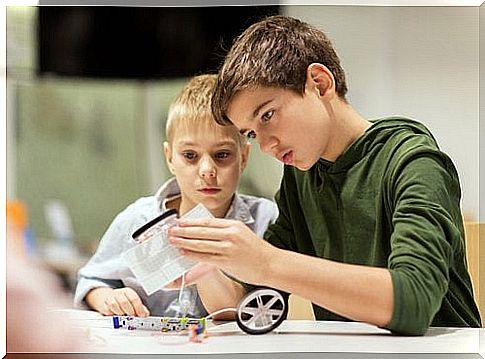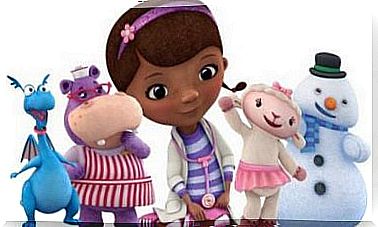What Affects The Relationship Between Siblings During Adolescence?

Adolescence is a phase in life that is characterized by many changes, and it thus also affects the relationship between siblings. The family is no longer in focus, but instead a teenager’s social group of friends becomes the main reference point.
As a result, it is common for sibling relationships to deteriorate. Brothers and sisters who were once best friends can suddenly see each other as annoying or become complete strangers. With that said, the relationship between siblings still has an influence on the course of the youth.
Siblings are the ones we grow up with. These are the ones we have known for as long as we can remember, and sometimes siblings even help raise each other. It is common for parents to repeatedly say that siblings should be best friends, that they will be there for the rest of their lives, that they are unconditional, and so on.
What affects the relationship between siblings during adolescence?
- All children have different personalities and temperaments. These can help or hinder the building of a good sibling relationship.
- The age difference between siblings. The greater the age difference, the less shared experience the siblings will have, and the weaker their bond may become.
- Education and treatment – subjective or not – that children receive from their parents. If teenagers feel that their siblings have received more favorable treatment from their parents, it can make them annoying. It can be translated into a relationship plagued by rivalry.
- Siblings’ interests. The more interests and hobbies that siblings share, the greater their opportunities to create a strong bond with each other.

Adolescents and brain development
During this period in a person’s development, a phenomenon called “synaptic pruning” occurs (in Swedish “synaptic pruning”), which means that unnecessary connections disappear to make room for new ones, a bit like when pruning trees and shrubs. From about 12 years to 20 years, the brain is in the middle of this development.
During this developmental phase, the brain undergoes morphological and functional changes by destroying, creating and reorganizing the brain’s synapses, ie. neural connections.
The search for identity
Brain restructuring is not the only thing that young people have to deal with during adolescence. They are also affected by:
- Hormone and physical changes.
- The influence that the social context can have on teenagers.
- The search for meaning and identity.
- New social situations that they have to solve on their own.
The merging of all of these gives rise to emotional changes that can sometimes be difficult to understand and manage. It also affects not only the teenagers themselves, but also those around them. This often leads to an inevitable distance between the teenagers and their families and thus a change in the relationship between siblings.
The brother or sister who was once a playmate and weapon bearer can suddenly become a source of stress, anger, irritability or indifference. It can make the other siblings (usually the youngest brother or sister) miss their old favorite friend, and it can turn into both grief and melancholy.
How can you create a good relationship between siblings during adolescence?
The best way to encourage a good relationship between siblings during adolescence is to start from birth. This means that one should strive for a democratic and respectful parenting without distinguishing between siblings. Parents must, as far as possible, involve their children in decisions that affect them.
There are also some additional tips that you can follow:
- Encourage your teens to spend time with their younger siblings. As long as it does not adversely affect their own activities, they can accompany their siblings to any leisure activity or take care of them when you are away.
- Help your teens realize what they mean to their siblings. Above all, avoid making siblings see each other as rivals. Rather, encourage the sibling bond.
- Remind your teens that small changes in how they treat their younger brothers and sisters can improve the relationship between them.

Do not compare siblings with each other. It is extremely important for parents not to give preferential treatment to any of their children.
- Teach your children how to solve problems. Respect their demands and respect their decisions, but set boundaries as needed.
- Explain to them what it means to be young – the transition from childhood to adulthood and all that it means.









